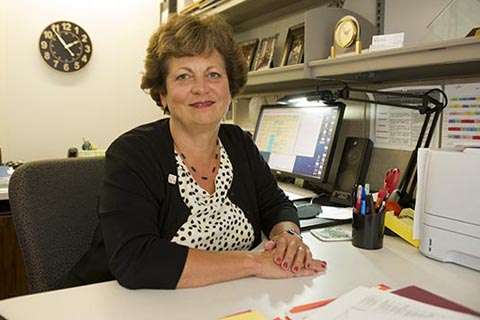Research explores health care support for young adults with ASD

How difficult would it be to abruptly be plopped down in a foreign country, with no knowledge of the culture and language—no translation handbook—while learning how to drive for the first time?
Once hitting age 18, this is the type of pressure and confusion often felt by those with autism spectrum disorder (ASD), as they're suddenly expected to act as independent adults in managing their own health care.
What a difference a day makes.
In turning from 17 to 18, the difficulty for those with ASD is that although their legal status changes to "adult," their developmental age lags behind chronological age. Those with ASD are challenged by abnormal development of communication, social skills and reasoning that impacts independence.
Whether calling for appointments, filling out forms, dealing with pharmacies or interacting with physicians and their staff, it can be overwhelming for those with ASD. Depending on the age limit in pediatric offices, those with ASD may also face having to find a new physician. At the same time, their caregivers may hit unexpected obstacles helping their loved ones because of health care legalities and privacy issues.
Mary Dereski understands.
"Autism awareness within pediatrics has been tremendous and has resulted in children being accurately diagnosed much quicker," says Dereski, associate professor of biomedical sciences. "But now, in terms of sensitivity to their different situation, we're hearing of young adults with ASD falling off the cliff within the health care system. This is yet another stressor for those already dealing with so much."
Dereski is also director of the OU William Beaumont (OUWB) School of Medicine's capstone program. As director, she engages with medical students in the program's research initiatives. It's in this capacity that she hopes to facilitate some changes to help the young adult ASD population more comfortably navigate the health care system.
About one in 88 children has ASD, according to estimates from the Centers for Disease Control and Prevention's Autism and Developmental Disabilities Monitoring Network.
"In ever-increasing numbers, our medical students will see ASD patients in their practices," says Dereski. "They can be attuned to making their health care experience less stressful."
Oakland University is on the cutting edge in its efforts on behalf of those with autism. The OU Center for Autism Research, Education and Support (OUCARES) integrates academic coursework and research with hands-on community work to prepare professionals to be leaders in the autism community.
"It's inspiring," says Dereski, "and it makes for an ideal foundation for this particular ASD research."
How can this be accomplished? First stop: team up with OUCARES for outstanding support. Next stop: go to the source.
"We need to gather information from those with ASD and their caregivers," says Dereski. "We want to know the difficulties they're experiencing at physicians' offices."
Often, those with ASD don't appear outwardly different, so they may blend into the crowd in a busy physician's office.
But not understanding their differences can have unintended consequences.
"If someone with ASD gives incorrect information or answers questions (verbally or on forms) based on misunderstandings, this impacts care," Dereski says.
"Additionally, their perspective may differ from their caregiver's perspective, so that caregiver input is vital to nurses and physicians."
Sensory issues can also be a problem.
"Many with ASD get overwhelmed by too much stimuli," adds Dereski. "For some, waiting for a long time in a crowded, noisy waiting room can be excruciating."
After compiling feedback like this from ASD families, the next step in the research process will be making office calls.
"We need to consult with area physicians," Dereski says. "In bringing concerns and ideas to them, I think some very reasonable changes can be made to better accommodate this population with medical directives."
To create greater awareness, Dereski plans to produce an online continuing education module regarding this issue.
"The changes that can be made to help this special group can be of global benefit because the need exists everywhere," Dereski says. "That's a goal worth pursuing."

















